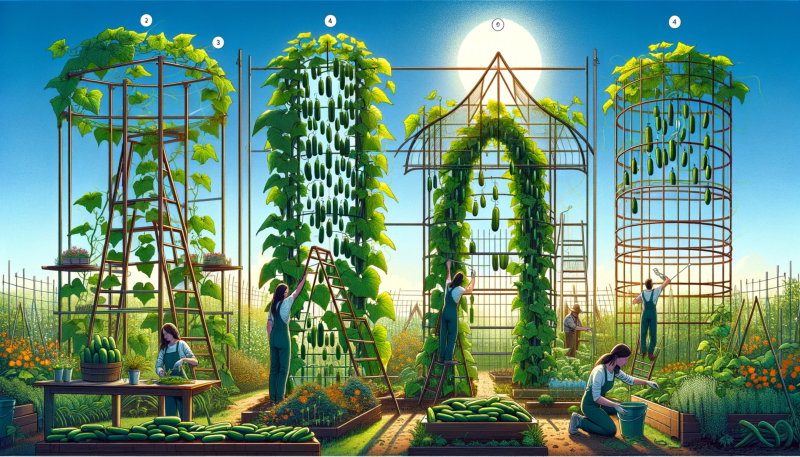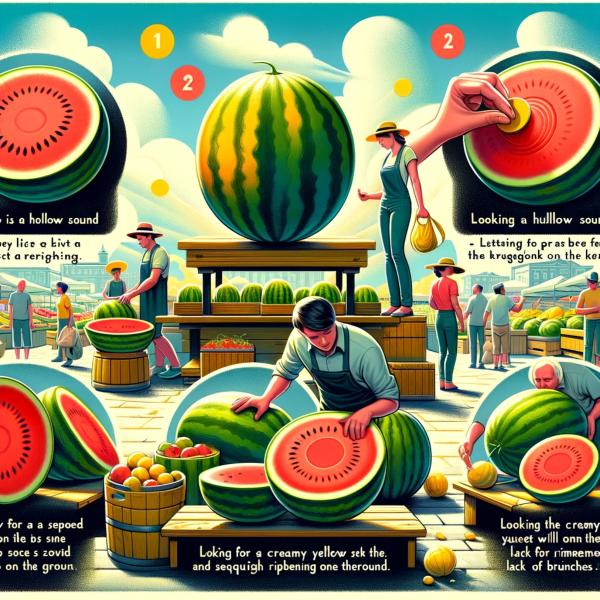When it comes to vegetables, there are many different types and varieties to choose from. One group of vegetables that often goes overlooked is the nightshade family. Nightshade vegetables are a diverse group of plants that belong to the Solanaceae family. Despite their name, these vegetables are not inherently dangerous or toxic, but they do contain certain compounds that can affect some individuals.
Some of the most common nightshade vegetables include tomatoes, potatoes, eggplants, and peppers. These vegetables are known for their vibrant colors and unique flavors, making them popular additions to many dishes. However, it is important to note that not everyone can tolerate nightshade vegetables. Some people may experience digestive issues or allergic reactions when consuming these vegetables.
Despite the potential drawbacks, nightshade vegetables offer a wide range of health benefits. They are rich in vitamins, minerals, and antioxidants that can support overall health and well-being. For example, tomatoes are an excellent source of vitamin C and lycopene, a powerful antioxidant that has been linked to a reduced risk of certain cancers. Similarly, potatoes provide a good amount of vitamin B6 and potassium, which are essential for proper brain function and heart health.
how to wash a hat
There are countless ways to incorporate nightshade vegetables into your diet. You can enjoy them raw, cooked, or even fermented. From fresh salads to hearty stews, these vegetables can add a burst of flavor and color to any meal. Just be sure to listen to your body and pay attention to any adverse reactions. If you do experience discomfort or allergic symptoms after eating nightshade vegetables, it may be best to avoid them and opt for other vegetable options instead.
See Also: A Complete Guide to Selecting the Healthiest Yogurt Brands and Varieties
Exploring Nightshade Vegetables: What Are They?
Nightshade vegetables are a group of plants that belong to the Solanaceae family. They are called nightshades because some of these plants tend to grow in shady areas and bloom at night. These vegetables are widely consumed and are an important part of various cuisines around the world.
See Also: Tips for Faster Drying Nail Polish - Achieve Quick Dry Nails
Some common nightshade vegetables include:
- Tomatoes
- Potatoes
- Eggplant
- Peppers (bell peppers, chili peppers)
- Tomatillos
- Goji berries
While nightshade vegetables are generally nutritious and delicious, it's important to note that they contain a compound called solanine, which can be harmful if consumed in large quantities. However, cooking or processing these vegetables reduces the solanine content to safe levels.
Nightshade vegetables are versatile and can be used in a variety of dishes. They add flavor, color, and texture to salads, soups, stews, sauces, and more. Tomatoes are commonly used in pasta sauces and salsas, while potatoes can be baked, mashed, or roasted. Eggplants are often used in Mediterranean and Middle Eastern cuisines, while peppers add a spicy kick to dishes.
It's important to note that some individuals may have sensitivities or allergies to nightshade vegetables. If you experience any adverse reactions after consuming these vegetables, it's recommended to consult a healthcare professional.
Overall, exploring nightshade vegetables can open up a whole new world of flavors and culinary possibilities. Whether you're a fan of tomatoes, potatoes, or peppers, incorporating these vegetables into your diet can add depth and variety to your meals.
What are nightshade vegetables?
Nightshade vegetables are a group of plants that belong to the Solanaceae family. They get their name from the fact that many of them grow and thrive in shady areas, especially during the night. These vegetables are known for their unique and distinct flavors, making them popular ingredients in various cuisines around the world.
Some common nightshade vegetables include tomatoes, potatoes, bell peppers, eggplants, and chili peppers. These vegetables are rich in essential nutrients such as vitamins A, C, and K, as well as dietary fiber and antioxidants. They also provide a good source of minerals like potassium and magnesium.
While nightshade vegetables offer numerous health benefits, it's worth noting that some people may have sensitivities or allergies to them. Certain individuals may experience digestive issues or joint pain after consuming nightshade vegetables. However, it's important to remember that these reactions are not common and only affect a small percentage of the population.
Despite any potential sensitivities, nightshade vegetables can be incredibly versatile in the kitchen. They can be enjoyed raw in salads, roasted or grilled as a side dish, or used as key ingredients in various recipes. For example, tomatoes are the base for many pasta sauces and salsas, while potatoes can be mashed, baked, or turned into fries.
In conclusion, nightshade vegetables are a diverse group of plants that offer a wide range of flavors and nutrients. Whether you're a fan of tomatoes or enjoy the heat of chili peppers, incorporating these vegetables into your diet can add depth and variety to your meals.
Why are they called nightshade vegetables?
Nightshade vegetables are called so because they belong to the Solanaceae family, which is commonly known as the nightshade family. This family of plants includes a variety of vegetables and fruits that share similar characteristics and properties.
These vegetables got their name from the fact that many of them grow in shady areas and tend to produce their fruits at night. Additionally, some nightshade plants have a toxic compound called solanine, which can be harmful if consumed in large quantities.
Despite their name and potential toxicity, nightshade vegetables are widely consumed and have been a part of human diets for centuries. They offer various health benefits and are rich in essential nutrients like vitamins, minerals, and antioxidants.
Some popular nightshade vegetables include tomatoes, potatoes, peppers (bell peppers, chili peppers), eggplants, and goji berries. These vegetables are versatile and can be used in a wide range of dishes, adding flavor, color, and nutritional value.
It's important to note that while nightshade vegetables can be enjoyed by most people, some individuals may be sensitive to the compounds found in these vegetables. If you experience any adverse reactions after consuming nightshade vegetables, it's advisable to consult a healthcare professional.
turkey cooking time
Why do people eat nightshades?
Nightshade vegetables are a popular choice for many people due to their unique flavors and versatility in cooking. These vegetables, which belong to the Solanaceae family, include tomatoes, potatoes, peppers, and eggplants. Despite their name, nightshades are not inherently dangerous or toxic, and they have been consumed by humans for centuries. Here are some reasons why people choose to incorporate nightshades into their diets:
Taste: Nightshade vegetables offer a range of flavors that can enhance the taste of various dishes. Tomatoes, for example, are often used to add a tangy and juicy element to salads, sauces, and sandwiches. Peppers, on the other hand, can add a spicy kick to stir-fries, salsas, and marinades.
Nutritional Value: Nightshades are rich in essential nutrients like vitamins A and C, potassium, and fiber. These vegetables can contribute to a well-balanced diet and support overall health. For instance, tomatoes are known for their high lycopene content, which is a powerful antioxidant that may help reduce the risk of certain diseases.
Culinary Versatility: Nightshade vegetables are incredibly versatile in cooking. They can be roasted, grilled, sautéed, or used in soups, stews, and casseroles. Their ability to absorb flavors and complement other ingredients makes them a valuable addition to a wide range of recipes.
Cultural Significance: Nightshades have been an integral part of many cuisines around the world for centuries. They play a significant role in dishes like Italian pasta sauces, Indian curries, Mexican salsas, and Thai stir-fries. By incorporating nightshades into their meals, people can experience the authentic flavors of these traditional dishes.
Personal Preference: Ultimately, people eat nightshade vegetables simply because they enjoy the taste and texture. These vegetables can add depth and complexity to meals, making them more enjoyable and satisfying. Whether it's the smoky flavor of roasted eggplants or the sweet crunch of bell peppers, each nightshade vegetable offers a unique sensory experience.
Despite the potential benefits, it's important to note that some individuals may have sensitivities or allergies to nightshade vegetables. If you have any concerns or experience adverse reactions after consuming these veggies, it's best to consult a healthcare professional.
In conclusion, people eat nightshade vegetables for their taste, nutritional value, culinary versatility, cultural significance, and personal preference. These vegetables have been a part of human diets for centuries and continue to be enjoyed by many around the world.
Common Nightshade Vegetables: A List and Overview
Nightshade vegetables belong to the Solanaceae family and are known for their characteristic nightshade family traits. While some people may have sensitivities or allergies to nightshade vegetables, they are widely consumed and enjoyed by many. Here is a list and overview of some common nightshade vegetables:
| Vegetable | Description |
|---|---|
| Tomatoes | Tomatoes are one of the most popular nightshade vegetables. They come in a variety of colors and sizes, and are used in numerous dishes, from salads to sauces. |
| Potatoes | Potatoes are a staple food in many cuisines. They can be baked, mashed, fried, or used in soups and stews. There are different types of potatoes, including russet, red, and sweet potatoes. |
| Eggplants | Eggplants are a versatile vegetable that can be grilled, roasted, or used in dishes like moussaka and ratatouille. They have a unique texture and a slightly bitter taste. |
| Peppers | Peppers come in various colors, shapes, and levels of spiciness. Bell peppers are mild and sweet, while chili peppers can range from mildly spicy to extremely hot. Peppers can be used in salads, stir-fries, and salsas. |
| Tomatillos | Tomatillos are small, green fruits that are commonly used in Mexican cuisine. They have a tart flavor and are often used to make salsa verde. |
These are just a few examples of common nightshade vegetables. It's important to note that some people may experience symptoms like joint pain or digestive issues when consuming nightshade vegetables. If you suspect you have an intolerance or allergy, it's best to consult with a healthcare professional.
What are common nightshade vegetables?
Nightshade vegetables are a group of plants that belong to the Solanaceae family. They are called nightshades because some species of these plants bloom at night or grow in shady areas. Common nightshade vegetables include:
- Tomatoes: Tomatoes are one of the most popular nightshade vegetables. They come in a variety of colors, shapes, and sizes and are used in many different cuisines around the world.
- Potatoes: Potatoes are another well-known nightshade vegetable. They are a staple food in many cultures and are used to make a wide range of dishes such as mashed potatoes, french fries, and potato salad.
- Eggplants: Eggplants are known for their deep purple color and unique shape. They have a slightly bitter taste and are commonly used in Mediterranean and Asian cuisines.
- Peppers: Peppers come in different varieties, including bell peppers, chili peppers, and jalapenos. They add flavor and heat to dishes and are used in many cuisines around the world.
- Tomatillos: Tomatillos are small green fruits that are commonly used in Mexican cuisine. They have a tart flavor and are often used to make salsa verde.
It's important to note that not all nightshade vegetables are edible. Some species, such as deadly nightshade (Atropa belladonna), are highly toxic and should not be consumed.
While nightshade vegetables are nutritious and delicious, it's worth mentioning that some people may be sensitive or allergic to them. If you experience any adverse reactions after consuming nightshade vegetables, it's best to consult with a healthcare professional.
Why avoid nightshade vegetables?
Nightshade vegetables are a group of plants that belong to the Solanaceae family. While they may be delicious and nutritious for many people, some individuals choose to avoid them due to their potential negative effects on health. Here are a few reasons why some people decide to eliminate nightshade vegetables from their diet:
1. Inflammatory response: Nightshade vegetables contain a substance called solanine, which has been linked to inflammation in the body. For individuals with certain inflammatory conditions, such as arthritis or inflammatory bowel disease, avoiding nightshades may help reduce symptoms.
2. Sensitivity or intolerance: Some people may have a sensitivity or intolerance to nightshade vegetables, experiencing symptoms such as digestive issues, skin rashes, or joint pain after consuming them. Eliminating these vegetables from their diet can help alleviate these symptoms.
3. Autoimmune diseases: Nightshade vegetables may exacerbate symptoms in individuals with autoimmune diseases, such as lupus or rheumatoid arthritis. The compounds found in these vegetables can potentially increase inflammation and worsen the immune response in these individuals.
4. Alkaloids: Nightshade vegetables contain alkaloids, which are natural compounds that can have toxic effects in large amounts. While the levels of alkaloids in nightshades are generally low and not harmful for most people, some individuals may choose to avoid them as a precaution.
5. Personal preference: Finally, some people simply do not enjoy the taste or texture of nightshade vegetables. They may prefer to explore other vegetable options that better suit their palate and dietary preferences.
It is important to note that not everyone needs to avoid nightshade vegetables, and they can be a healthy addition to a balanced diet for many individuals. However, if you have concerns about their potential effects on your health or if you experience any adverse reactions after consuming them, it is best to consult with a healthcare professional or registered dietitian for personalized advice.
Are Nightshade Vegetables Safe to Eat?
Many people may wonder if nightshade vegetables are safe to eat, given their reputation for causing health issues in some individuals. While it is true that certain individuals may be sensitive or allergic to nightshade vegetables, most people can consume them without any problems.
The concerns surrounding nightshade vegetables stem from the fact that they contain a group of chemicals called alkaloids. These alkaloids can be toxic in large amounts, but the levels found in nightshade vegetables are generally too low to cause harm to the average person.
In fact, nightshade vegetables are a valuable addition to a healthy diet. They are rich in essential nutrients such as vitamins A, C, and K, as well as potassium and fiber. Additionally, they add variety and flavor to meals, making them a popular choice among many cuisines around the world.
However, it is important to note that some individuals may experience adverse reactions to nightshade vegetables. These reactions can range from mild symptoms such as digestive issues or skin rashes to more severe allergic reactions. If you suspect that you may be sensitive to nightshade vegetables, it is recommended to consult with a healthcare professional for guidance.
| Common Nightshade Vegetables | Scientific Name |
|---|---|
| Tomatoes | Solanum lycopersicum |
| Potatoes | Solanum tuberosum |
| Eggplants | Solanum melongena |
| Peppers | Capsicum spp. |
In conclusion, nightshade vegetables are generally safe for most people to eat. They offer a range of nutritional benefits and can be enjoyed as part of a balanced diet. However, if you have any concerns or experience adverse reactions, it is best to consult with a healthcare professional.
Should I avoid nightshade vegetables?
While nightshade vegetables are a common part of many people's diets and can provide a range of health benefits, some individuals may need to avoid them due to certain health conditions or sensitivities.
One reason why some people choose to avoid nightshade vegetables is because they contain a group of compounds called alkaloids. These compounds can cause inflammation in some individuals, particularly those with certain autoimmune conditions like rheumatoid arthritis or inflammatory bowel disease. If you have one of these conditions, it may be worth considering eliminating nightshade vegetables from your diet to see if it helps reduce symptoms.
However, it is important to note that not everyone with these conditions will be affected by nightshade vegetables in the same way. Some individuals may find that they can still consume nightshades in moderation without experiencing adverse effects. It is a good idea to consult with a healthcare professional or registered dietitian to determine whether you should avoid nightshade vegetables based on your specific health needs.
Additionally, some individuals may have a sensitivity or allergy to nightshade vegetables. Symptoms can include digestive issues, skin rashes, or respiratory problems. If you suspect that you have an allergy or sensitivity to nightshades, it is recommended to avoid them and speak with a healthcare professional for further evaluation and guidance.
Ultimately, the decision to avoid nightshade vegetables should be based on your individual health needs and tolerance. If you do choose to eliminate nightshades from your diet, it is important to ensure you are still consuming a balanced and varied range of other vegetables to maintain adequate nutrient intake.
Are nightshades safe to eat?
Nightshade vegetables are generally safe to eat for most people. However, some individuals may be sensitive or allergic to certain components found in nightshades, such as solanine.
Solanine is a natural chemical compound present in nightshade vegetables, like tomatoes, potatoes, and eggplants. While solanine is generally harmless in small amounts, excessive consumption may lead to symptoms such as digestive issues, headaches, and joint pain in sensitive individuals.
It is important to note that cooking nightshade vegetables can help reduce the levels of solanine and make them safer to consume. Peeling potatoes and removing the green parts of tomatoes can also minimize solanine content.
If you suspect you may have a sensitivity or allergy to nightshade vegetables, it is best to consult with a healthcare professional or allergist for guidance. They can help diagnose any potential issues and provide recommendations regarding your diet.
Furthermore, it is worth mentioning that nightshade vegetables offer various health benefits. They are rich in essential nutrients, including vitamins, minerals, and antioxidants. Incorporating a variety of nightshade vegetables into a balanced diet can contribute to overall well-being.
| Nightshade Vegetables | Examples |
|---|---|
| Tomatoes | Cherry tomatoes, beefsteak tomatoes, Roma tomatoes |
| Peppers | Bell peppers, chili peppers, jalapenos |
| Eggplants | Globe eggplants, Japanese eggplants |
| Potatoes | Russet potatoes, red potatoes, sweet potatoes |
In conclusion, while nightshade vegetables are generally safe to eat, it is important to be aware of any potential sensitivities or allergies. Moderation and proper preparation can help minimize any potential risks associated with consuming nightshades.
Nightshades in Cooking: How to Use and Prepare Them
Nightshade vegetables are a diverse group of plants that can add a unique flavor and texture to your dishes. However, knowing how to properly use and prepare these vegetables is essential to make the most of their potential in your cooking. Here are some tips on how to use and prepare nightshade vegetables:
pumpkin carving stencils
| Vegetable | Usage | Preparation |
|---|---|---|
| Tomatoes | Tomatoes are incredibly versatile and can be used in a variety of dishes such as sauces, salads, and soups. They can be chopped, sliced, or pureed depending on the recipe. | Before using tomatoes, it is important to remove the skin and seeds if desired. To remove the skin, blanch the tomatoes in boiling water for a few seconds and then plunge them into ice water. The skin will easily peel off. To remove the seeds, cut the tomatoes in half horizontally and gently squeeze out the seeds. |
| Potatoes | Potatoes are a staple in many cuisines and can be prepared in various ways such as boiling, baking, or frying. They can be used in dishes like mashed potatoes, roasted potatoes, or potato salads. | Before cooking potatoes, make sure to wash and scrub them to remove any dirt. If you're boiling or steaming them, leave the skin on for added flavor and nutrients. If you're baking or frying them, you may choose to peel the potatoes for a smoother texture. |
| Eggplants | Eggplants have a meaty texture and are commonly used in dishes like ratatouille, moussaka, or baba ganoush. They can be grilled, roasted, or sautéed to bring out their rich flavor. | To prepare eggplants, start by slicing them into the desired shape. To remove any bitterness, sprinkle the slices with salt and let them sit for about 30 minutes. Rinse the salt off and pat dry before cooking. |
| Bell Peppers | Bell peppers come in various colors and can be used in salads, stir-fries, or stuffed dishes. They add a sweet and crunchy element to any recipe. | To prepare bell peppers, remove the stem, seeds, and white pith. You can then slice, dice, or stuff them depending on the recipe. |
Remember to experiment with different cooking methods and flavor combinations to find your favorite ways to use nightshade vegetables in your dishes. Whether it's adding a tangy tomato sauce to pasta or roasting potatoes for a crispy side dish, the possibilities are endless when it comes to incorporating nightshade vegetables into your cooking.
How do you use nightshade?
Nightshade vegetables can be used in a variety of ways in cooking. Here are some popular methods of using nightshade vegetables:
- Roasting: Nightshade vegetables like tomatoes, bell peppers, and eggplants can be roasted to bring out their natural sweetness and enhance their flavors. Simply slice or dice the vegetables, toss them with olive oil, salt, and pepper, and roast them in the oven until they are tender and slightly caramelized.
- Sautéing: Another common method of cooking nightshade vegetables is sautéing. Heat some oil or butter in a pan, add the vegetables, and cook them over medium heat until they are softened and lightly browned. Sautéed nightshade vegetables can be enjoyed as a side dish or added to pasta, stir-fries, or salads.
- Grilling: Nightshade vegetables like bell peppers, tomatoes, and zucchini can also be grilled for a smoky and charred flavor. Simply brush the vegetables with oil, sprinkle them with salt and pepper, and grill them over medium-high heat until they are tender and slightly charred.
- Blending: Nightshade vegetables like tomatoes and bell peppers can be blended into sauces, soups, and dips. Simply chop the vegetables, blend them in a food processor or blender until smooth, and use the puree as a base for various dishes.
- Stuffing: Bell peppers are commonly used for stuffing. Cut off the tops of the peppers, remove the seeds and membranes, and stuff them with a mixture of cooked rice, ground meat, vegetables, and herbs. Bake the stuffed peppers in the oven until they are cooked through and the filling is hot.
These are just a few examples of how nightshade vegetables can be used in cooking. Get creative and experiment with different recipes to discover new and delicious ways to enjoy these versatile vegetables!
Can you cook with nightshade?
Yes, you can definitely cook with nightshade vegetables! Nightshade vegetables belong to the Solanaceae family and include popular ingredients like tomatoes, potatoes, peppers, and eggplants. These vegetables are versatile and can be used in a variety of delicious dishes.
Tomatoes, for example, are a staple in many cuisines around the world. They can be used to make sauces, soups, salads, and even roasted or grilled as a flavorful side dish. Potatoes are another nightshade vegetable that can be cooked in numerous ways, from mashed potatoes to crispy fries.
Peppers, such as bell peppers and chili peppers, add a burst of flavor and vibrant color to dishes. They can be sautéed, stuffed, grilled, or used in stir-fries. Eggplants are also commonly used in cooking, especially in Mediterranean and Asian cuisines. They can be baked, grilled, or fried to create delicious dishes like eggplant parmesan or baba ganoush.
It's important to note that while nightshade vegetables are generally safe to consume, some individuals may have sensitivities or allergies to certain nightshade vegetables. If you have any concerns or experience any adverse reactions, it's best to consult with a healthcare professional.
In conclusion, nightshade vegetables offer a wide range of culinary possibilities. From tomatoes to potatoes, peppers to eggplants, these vegetables can be cooked in various ways to create tasty and satisfying meals. So go ahead and explore the world of nightshade vegetables in your kitchen!
How do you make nightshades less toxic?
While nightshade vegetables can be nutritious and flavorful, some individuals may experience sensitivity or allergic reactions to certain compounds found in these vegetables. If you are interested in enjoying nightshades but want to make them less toxic, here are a few steps you can take:
1. Cooking: Cooking nightshade vegetables can help reduce the levels of certain potentially toxic compounds. Heat breaks down these compounds, making them less harmful to consume. So, try roasting, steaming, or sautéing nightshades instead of eating them raw.
2. Peeling and deseeding: Some of the toxic compounds in nightshades are found in the skin and seeds. Peeling and deseeding nightshade vegetables can help reduce the levels of these compounds. However, keep in mind that this may also remove some of the nutrients.
3. Variety and moderation: Instead of relying heavily on nightshade vegetables in your diet, try to incorporate a variety of other vegetables as well. This can help balance your nutrient intake and reduce the potential negative effects of nightshade vegetables. Additionally, consuming nightshades in moderation can also be beneficial.
4. Listen to your body: Pay attention to how your body reacts after consuming nightshade vegetables. If you experience any adverse effects, such as digestive issues or inflammation, it may be a sign that you are sensitive to these vegetables. In such cases, it is best to avoid or limit their consumption.
Remember, everyone's body is different, and what works for one person may not work for another. It's important to listen to your body and make choices that align with your individual needs and preferences.
Are nightshades better when cooked?
There is ongoing debate about whether nightshade vegetables are better when cooked or eaten raw. Some people argue that cooking nightshades can help break down certain compounds that may be hard to digest, making them easier on the stomach. Others believe that cooking nightshades can lead to a loss of nutrients and potentially alter their taste and texture.
When nightshade vegetables are cooked, their cell walls break down, making the nutrients more accessible to the body. This can be especially beneficial for individuals with digestive issues or those who have difficulty breaking down certain compounds found in raw nightshades.
Cooking nightshade vegetables can also enhance their flavor. The heat from cooking can bring out their natural sweetness and reduce any bitterness or astringency they may have. This can make them more enjoyable to eat and encourage individuals to incorporate them into their diet more frequently.
However, it's important to note that cooking nightshades can also lead to a loss of certain nutrients. Some vitamins, such as vitamin C, can be sensitive to heat and may be partially destroyed during the cooking process. To mitigate this, it's recommended to cook nightshades using methods that retain as much of their nutritional value as possible, such as steaming or roasting instead of boiling.
In conclusion, whether nightshades are better when cooked or eaten raw depends on individual preferences and dietary needs. Cooking can make them easier to digest and enhance their flavor, but it may also result in a loss of nutrients. It's important to find a balance and incorporate both cooked and raw nightshade vegetables into a well-rounded diet.
Q&A:
What are nightshade vegetables?
Nightshade vegetables are a group of plants that belong to the Solanaceae family. They include tomatoes, potatoes, eggplants, and peppers.
Are nightshade vegetables healthy?
Yes, nightshade vegetables are generally healthy and provide a variety of nutrients. However, some people may be sensitive to a compound called solanine found in nightshade vegetables, which can cause inflammation and other health issues.
What are some common uses for nightshade vegetables?
Nightshade vegetables can be used in a variety of dishes. Tomatoes are often used in sauces, salads, and sandwiches. Potatoes can be boiled, mashed, or roasted. Eggplants are commonly used in dishes like moussaka or baba ganoush. Peppers can be added to stir-fries, stuffed, or used in salsas.
Are there any alternatives to nightshade vegetables?
Yes, if you have an intolerance or sensitivity to nightshade vegetables, there are alternatives you can use. For example, instead of tomatoes, you can use roasted red peppers or carrots in sauces. Instead of potatoes, you can use cauliflower or sweet potatoes. Instead of eggplant, you can use zucchini or mushrooms. And instead of peppers, you can use other herbs and spices to add flavor to your dishes.
Can nightshade vegetables cause allergies?
Some people may have allergies to nightshade vegetables, although this is relatively rare. Symptoms of an allergy can include hives, itching, swelling, and difficulty breathing. If you suspect you have a nightshade vegetable allergy, it's best to consult with a healthcare professional for proper diagnosis and advice.
short haircuts for women
What are nightshade vegetables?
Nightshade vegetables are a group of plants that belong to the Solanaceae family. They include vegetables like tomatoes, bell peppers, eggplants, and potatoes.





